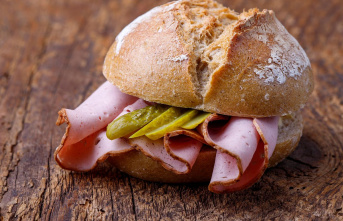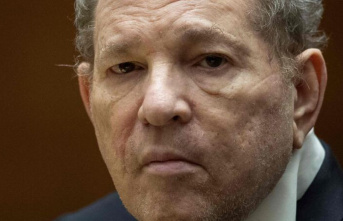"Outrage", "ordeal" or "humiliation". This is how many candidates for national police define their experience in these oppositions, which depend on the Ministry of the Interior. Especially for the personal interview and the psychotechnical test after passing the physical and theoretical tests. As ABC advanced, the Superior Court of Justice of Madrid (TSJM) has already annulled more than 400 of those interviews for ruling out applicants arbitrarily and unjustifiably.
Not in vain, the TSJM has agreed with all those declared 'unfit' in that test who have appealed in court. At the moment there are already 412 sentences forcing the General Directorate of the Police (DGP) to readmit as many opponents who were discarded for that interview.
"They treated me like a criminal," recalls Armando Jiménez, who was even threatened by interviewers because they believed he had a hidden camera in his jacket. It was the logo of that clothing brand. "You feel anger and helplessness after so much effort," he says. This Madrilenian has presented himself to other similar oppositions, such as those of the Civil Guard, in which he affirms that he was treated "with exquisite and impeccable education."
David Fuente lives in Barcelona and denounces that he was discarded "with a report riddled with lies." They asked him about the most unfavorable aspects of being a police officer and he mentioned the lack of material means. The interviewers made it ugly because, according to them, someone who is not part of the body cannot have an opinion on that. Not even though the police unions have been denouncing him for years and his wife is a national police officer. "They humiliate and mistreat you with a totally arbitrary screen," concludes David.
Others affected prefer not to give their full names for fear of reprisals when they return to the opposition from which they were discarded by the DGP and reinstated by the Justice. Carlos is Andalusian and remembers that he was treated "very badly" in that interview, in which he was asked "up to three times what my mother did." He assures that the DGP manages these tests “as if it were a farmhouse and without any respect” for so many judicial decisions that annul them as arbitrary.
His countryman Francisco was also asked about his father, who is a national police officer. So much so that "it seemed that the interview was more focused on him than on me." He remembers it as "a constant attack", in which even the interviewers dedicated themselves to "belittle my father".
Juan Antonio has also suffered from Andalusia, who was discarded despite his military experience of several years and some international mission behind his back: "They treated me very badly, it was a bombing." He says that this bad experience has not taken away his "desire" to fulfill his "dream" of joining the Police, but it has taken away the "good image" he had of her.
Ana is from Madrid and she also suffered "an interview full of contempt, looks of hatred and disgust" from two women, who "were very harsh from the beginning, especially because of her age." She was 35 years old. In addition, they branded it "unnatural and insincere."
From Valencia, Rafael highlights another problem for so many applicants that the DGP irregularly rejects and that the Justice forces him to reinstate the opposition two or three years later. This causes that in each psychotechnical test there are up to four different cut-off notes and with a lot of difference. Thus, the same year there are opponents who have to reach 7.3 in a test in which others have enough with a 4 scraped. This grievance has already reached the Supreme Court.
All this continues to happen even after the Supreme Court itself agreed with two candidates for the Navarre Provincial Police, who denounced the same arbitrariness that occurs in the National Police tests. Ángel Galindo is the lawyer who won that sentence and others before the TSJM for irregularities in three phases of this opposition, such as those mentioned and the spelling test.
He explains that the ruling of the High Court of last January establishes jurisprudence for tests such as the personal interview, in which "it requires that the professional profile that is valued and the parameters and aspects that are measured have been previously published, that the scoring criteria and variables and that the reason for the rating is reasoned according to the material obtained and the source on which the decision rests». That is to say, when dealing with aptitude tests, "the motivation for exclusion must be especially intense, not being enough generic or empty judgments of support", as is the case now.
Galindo recalls that the Supreme Court established half a year ago that these tests must meet "the minimum requirements of expressing the material or sources of information on which the technical judgment will operate, specifying the qualitative assessment criteria that will be used to issue it and express why the application of those criteria leads to the individualized result of denying the aptitude of a candidate”.
ABC has obtained the version of the National Police, whose Training and Improvement Division ensures that "it has taken the appropriate improvement measures for the following calls." He insists that, since the interviews began to be recorded in 2019, "there is no sentence against it." However, ABC has had access to several, annulling that test in favor of applicants who took it just that same year, in 2019.
Meanwhile, hundreds of those affected are forced to invest several years and up to 6,000 euros to amend before the Justice oppositions that continue to accumulate judgments against them as arbitrary.












